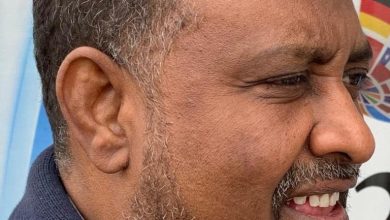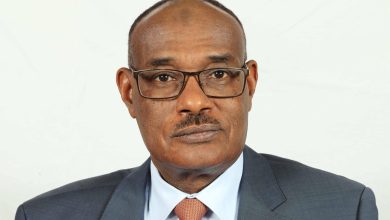Evaluating U.S. Mediation in Sudan’s War: A UN Mediation Principles Perspective

By Mohamed Osman
U.S. Department of State
On July 23, 2024, the U.S. Secretary of State extended an invitation to the Sudanese Armed Forces (SAF) and the Rapid Support Forces (RSF) for ceasefire talks scheduled to take place in Geneva on August 14, 2024. This initiative is a significant step in attempting to resolve Sudan’s escalating conflict, but it raises critical questions regarding its alignment with the United Nations’ well-established principles of effective mediation. By examining this effort through the lens of these principles, we can assess the strengths and weaknesses of U.S. mediation in Sudan.
The UN Principles of Effective Mediation
The United Nations Guidance for Effective Mediation emphasizes key principles essential for successful conflict resolution. These include preparedness, consent, impartiality, inclusivity, and adherence to international law and normative frameworks. Each of these principles, if properly applied, increases the likelihood of sustainable peace in complex conflict environments like Sudan.
In the context of the Sudanese conflict, these principles are paramount to fostering a credible process, yet they also expose the fragility of the U.S. mediation effort in addressing the war’s root causes.
Defining the Mediator’s Role
Mediation, as defined by conflict resolution expert Jacob Bercovitch, is “a process of conflict management, distinct from the parties’ negotiations, wherein those in conflict seek or accept the assistance of an outsider to influence their perceptions or behavior without resorting to force or legal authority.” The role of the mediator is to act as a neutral facilitator, guiding the process without dictating outcomes or passing judgment on fairness. In theory, the U.S. as a mediator should focus on clarifying issues, breaking down communication barriers, and creating an environment where the parties can negotiate in good faith.
However, the U.S. initiative in Sudan reveals several critical shortcomings in adhering to this role. A closer look at the mediation process through the key principles provides a clearer understanding of the challenges.
1. Preparedness
The three-week notice for the ceasefire talks in Geneva was insufficient for the thorough preparation required for such high-stakes negotiations. Adequate preparation is vital to ensuring that parties enter talks with a comprehensive understanding of their own positions, as well as those of their opponents. Conflict resolution scholars often speak of “ripeness” – the idea that successful mediation is most likely when both sides are ready to negotiate in earnest.
Given the complexity of the Sudanese conflict, the U.S. should have allocated more time to ensure that all necessary arrangements, particularly in logistical and diplomatic terms, were in place. A rushed timeline, as seen here, risks undermining the process before it begins.
2. Consent
Effective mediation hinges on the full and voluntary consent of all involved parties. Yet in this case, the Government of Sudan has not publicly endorsed the U.S. initiative. Their reluctance stems from several key concerns, all of which are reasonable:
• Exclusion of the UAE: Sudan has presented evidence, supported by a UN Panel of Experts report, that the UAE is a primary supporter of the RSF. Therefore, the Sudanese government’s demand to exclude the UAE from the Geneva talks is justified, as it is difficult to engage in a neutral process when one party is perceived as having external backing from a participant.
• Representation: The Sudanese government’s inclusion of various parties from the 2020 Juba Agreement is an essential factor in legitimizing the process. Thus, the Geneva talks should involve not just the SAF but also a broader government delegation representing all factions, including civilians.
• Implementation of the Jeddah Declaration: The U.S. has suggested that the Geneva talks will build on the Jeddah discussions, but for this to work, there must be enforceable mechanisms in place to implement what was agreed upon. This includes the RSF vacating occupied homes, government institutions, and facilities. Without clear commitments and consequences, ceasefire agreements remain symbolic and ineffective.
3. Impartiality
Impartiality is the cornerstone of any mediation process. In Sudan’s case, concerns about the U.S.’s neutrality have arisen due to the dynamics of its engagement with the RSF and the SAF. After the Jeddah meetings between the Sudanese government delegation and the U.S. special envoy, there was a perception that the U.S. was more focused on achieving a quick resolution than addressing the core issues at play, such as the RSF’s aggression against civilians and its links to external actors.
This perception risks undermining trust in the U.S. as a fair broker. A successful mediator must balance power dynamics without appearing to favor one side over the other.
5. Adherence to International Law and Normative Frameworks
Adherence to international law ensures that peace talks are grounded in globally recognized standards. While the U.S. initiative involves representatives from the UN and the African Union, there is little evidence that binding international legal frameworks are guiding the process. In a conflict as severe as Sudan’s, accountability for atrocities committed by RSF, particularly the RSF’s must be central to any mediation effort.
Conclusion
Applying the UN mediation principles to the U.S. mediation effort in Sudan reveals several critical shortcomings that may hinder its success:
• Insufficient preparation time and a rushed timeline that undermines confidence in the process.
• Lack of understanding of the conflict’s root causes, particularly the external influences driving the RSF.
• A perceived lack of neutrality, with concerns that the U.S. is more focused on securing a quick fix than ensuring a just resolution.
• Exclusion of key stakeholders, particularly the civilian population, from the mediation process.
• Failure to address RSF’s crimes and the role of external actors like the UAE in fuelling the conflict.
• Absence of a binding legal framework to ensure the accountability of all parties.
To contribute to a meaningful ceasefire and lay the groundwork for lasting peace, the U.S. must adjust its approach to align more closely with the fundamental principles of effective mediation. Only by addressing the underlying causes of the conflict, engaging all stakeholders, and maintaining true neutrality can the U.S. hope to facilitate a sustainable resolution in Sudan.



